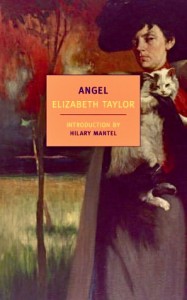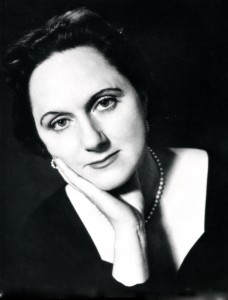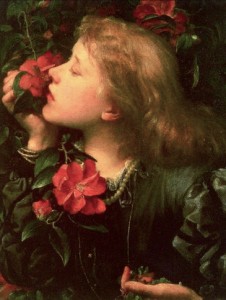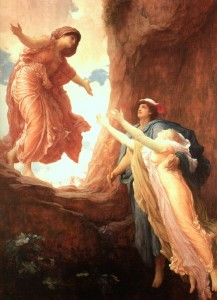“Kindly raise your coruscating beard from those iridescent pages of shimmering tosh and permit your mordant thoughts to dwell for one mordant moment on us perishing in the coruscating workhouse, which is where we shall, without a doubt, find ourselves, among the so-called denizens of deep-fraught penury if we [publish] such brilliant balderdash.”—Willie Brace to his partner Theo Gilbright on publishing Angel’s first novel.
 Those who have loved author Elizabeth Taylor’s Mrs. Palfrey at the Claremont (published in 1971 as a novel and released in 2005 as a film starring Dame Joan Plowright) will undoubtedly be fascinated also by Angel (published in 1957 as a novel and released as a film in 2007). Angel, less subtle in its black humor and obvious satire, will strike chords among all writers and lovers of writing who have ever, in their wildest imaginations, fantasized about producing a blockbuster novel, or even a moderately successful one. Taylor (1912 – 1975) lived her own life in relative obscurity, admired and praised by a small group of literati, including Barbara Pym, Ivy Compton-Burnett, and Robert Liddell, but she is now being republished by New York Review Books, and contemporary lovers of clever writing will now rejoice in her unique vision of what it takes to be a successful author of popular novels and her insights into why popular fame often fades.
Those who have loved author Elizabeth Taylor’s Mrs. Palfrey at the Claremont (published in 1971 as a novel and released in 2005 as a film starring Dame Joan Plowright) will undoubtedly be fascinated also by Angel (published in 1957 as a novel and released as a film in 2007). Angel, less subtle in its black humor and obvious satire, will strike chords among all writers and lovers of writing who have ever, in their wildest imaginations, fantasized about producing a blockbuster novel, or even a moderately successful one. Taylor (1912 – 1975) lived her own life in relative obscurity, admired and praised by a small group of literati, including Barbara Pym, Ivy Compton-Burnett, and Robert Liddell, but she is now being republished by New York Review Books, and contemporary lovers of clever writing will now rejoice in her unique vision of what it takes to be a successful author of popular novels and her insights into why popular fame often fades.

In 1900, Angel Deverell, fifteen, lives with her mother above the family grocery store in Norley. Emotionally, however, she lives on a completely different plane, imagining a life in which she is elegant, successful, admired by all, and, of course, wealthy beyond her most fervent dreams. Her mother and her aunt have made enormous sacrifices so that she can attend a private school and get the kind of education which might allow her to live a different sort of life from theirs. Angel has always believed that she is destined for greatness, however, and she has little appreciation of the family’s sacrifices, feeling in the core of her being that her success is predestined, inevitable, and deserved.
Angel’s Aunt Lottie has worked as a maid at Paradise House for years, and Angel lives as a child of the Paradise House elite in her imagination. She even shares a name with Angelica, the daughter of Lottie’s “Madam,” at Paradise House, only a month of two older than she. When Angel, on the way home from school one day, tells two schoolmates that her mother will one day inherit Paradise House – that she was disinherited because she married “beneath herself” – the story is circulated, and her mother and aunt are outraged. “I would rather have seen you dead at my feet than let you bring this disgrace on me,” her mother tells her.”

Portrait by George Frederick Watts, which Angel donates to a local art society in an effort to be accepted.
Angel solves the humiliation problem by announcing that she will never return again to school. Instead she will finish writing a romantic novel, The Lady Urania, set at “Haven Castle,” on which she works almost around the clock, and she is sure it will be a success. When she goes to the library and sees the name of a publisher of a popular novel, she sends the manuscript off, then travels alone to London to talk with them. The publisher’s wife has read the book and found it hilariously entertaining, but he wants some changes: he wants Angel to give the Duchess of Devonshire a fictional name; he wants a change in a men’s card game in which the winner of a wager will get to “lie with” Urania; and he demands that she change the graphic nature of the childbirth scene. Angel risks all and says “No,” and eventually the publisher, seeing the potential sales for the novel, accedes to her demands. The book is a huge popular success.

The Return of Persephone, by Frederic Leighton, the inspiration for a "Greek" character in another novel.
Writing a bestseller a year for the next five or six years, Angel continues her story with its ups and downs for forty more years, as her personal life and her literary life experience dramatic changes. Always front and center in her focus – after herself, of course – is Paradise House, the epitome of elegant living for Angel from the beginning of her life.
Written in the middle of Taylor’s career, Angel often feels like the kind of romantic melodrama that Angel herself writes, and lovers of serious literary fiction may find it hard to get used to that style, at least at the beginning . Eventually, it becomes clear that the author is suggesting Angel’s own style to give added irony and satire to her depiction of this character whose egocentrism knows no bounds. Focusing always on just one thing, her own happiness, Angel is not only one-sided but completely indifferent to the rest of the world. She feels no shame in relentlessly using others for her own ends, leading one character to remark, “I think that the secret of your power over people [as a novelist] is that you communicate with yourself, not with your readers.” She “travels” through her imagination to classical Greece and Venice, always interested in a romantic story and caring little for historical accuracy.
 Such an egocentric focus can be somewhat wearing on the reader, since it allows for very little character development. Though we come to know Angel extremely well, she remains one-sided and shallow, unconcerned with the everyday niceties that make social life successful – a not even slightly likable character who does not change significantly and whose success one cares about primarily because it moves the plot. Even through two world wars, Angel’s focus is on Angel and not on the outside world. “I would not lift a finger to help the war in any way,” she announces, declaring her pacifism as an excuse. As her fortunes change over more than forty years, Angel remains resolute, and it is in her resolve that she becomes more than just a satiric main character and becomes almost admirable. Similar in style and focus to authors Barbara Pym, Penelope Lively, Alice Thomas Ellis (Amazon link), and Jane Gardam, Elizabeth Taylor, a generation older than they, may finally be getting the literary attention she deserves. New York Review Books has already published another Taylor novel, A Game of Hide and Seek, and a complete collection of her short stories was released by Virago in June.
Such an egocentric focus can be somewhat wearing on the reader, since it allows for very little character development. Though we come to know Angel extremely well, she remains one-sided and shallow, unconcerned with the everyday niceties that make social life successful – a not even slightly likable character who does not change significantly and whose success one cares about primarily because it moves the plot. Even through two world wars, Angel’s focus is on Angel and not on the outside world. “I would not lift a finger to help the war in any way,” she announces, declaring her pacifism as an excuse. As her fortunes change over more than forty years, Angel remains resolute, and it is in her resolve that she becomes more than just a satiric main character and becomes almost admirable. Similar in style and focus to authors Barbara Pym, Penelope Lively, Alice Thomas Ellis (Amazon link), and Jane Gardam, Elizabeth Taylor, a generation older than they, may finally be getting the literary attention she deserves. New York Review Books has already published another Taylor novel, A Game of Hide and Seek, and a complete collection of her short stories was released by Virago in June.
ALSO by Elizabeth Taylor: MRS. PALFREY AT THE CLAREMONT, A GAME OF HIDE AND SEEK, A VIEW OF THE HARBOUR
VIDEO: ANGEL was made into a film by Francois Ozon in 2007. I have not seen it, but the trailer suggests that Angel is a more complex character here than she is in the novel. The trailer is here:
Photos, in order: The author’s photo is from http://www.littlebrown.co.uk\
When Angel becomes successful, she donates a painting by George Frederick Watts to the local art society in an effort to be accepted. She is surprised to hear that at least one person she had hoped to impress was shocked by her lack of taste. Seehttp://www.all-art.org
Angel’s decision to set a novel in Greece is accomplished quickly – by changing the name of the main character from Emmelina to Persephone, keeping the plot the same, and imagining “dazzling marble and diaphanous draperies” in the style of Frederick Lord Leighton, her favorite artist. “The Return of Persephone” by Leighton is found on http://ihategracefulpeople.blogspot.com
When the master of Paradise House dies, the house falls into disrepair and risks being vandalized or set afire as has happened with this old country house:http://www.geograph.org.uk. Copyright by Texas Radio and The Big Beat
